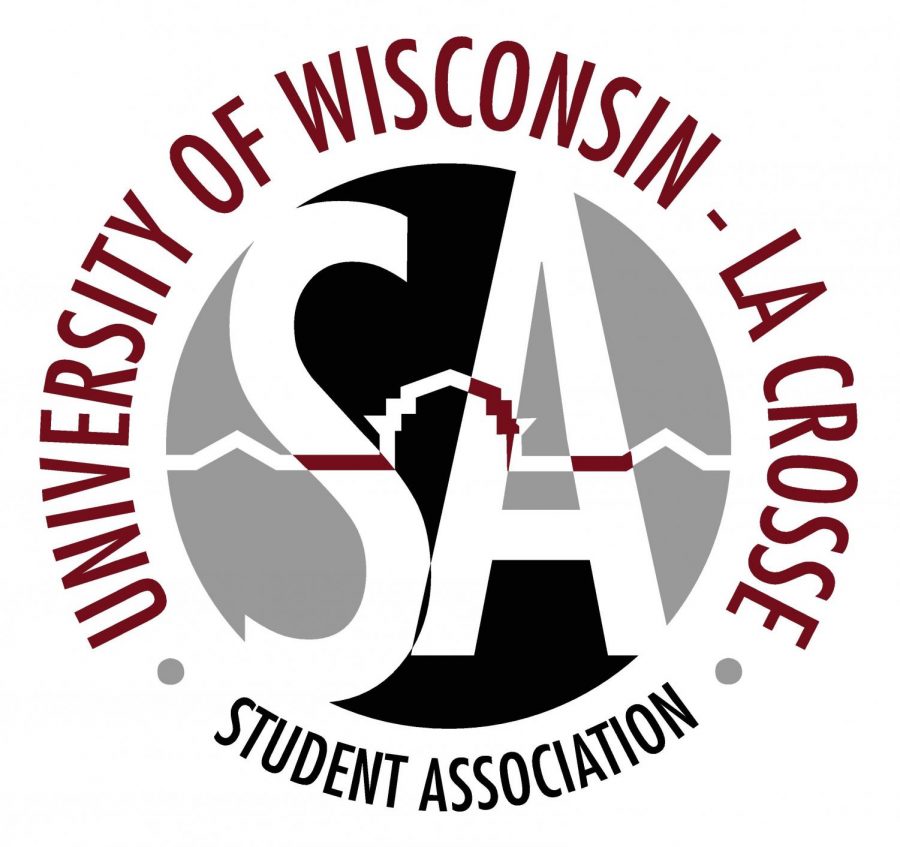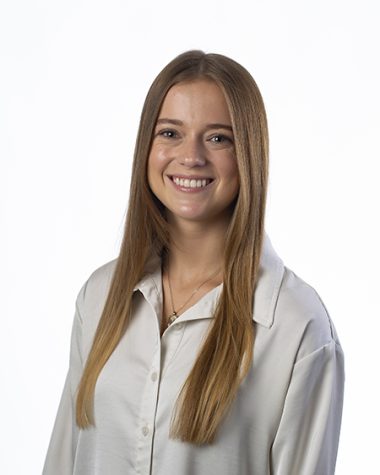Student Association discusses Oktoberfest concerns, sexual health through UWL’s Wellness and Health Advocacy Office, and lack of sustainability on campus due to COVID-19
September 24, 2020
On Wednesday, Sept. 23, the University of Wisconsin–La Crosse Student Association (SA) met virtually to discuss concerns over Oktoberfest this weekend, student’s wellbeing’s during COVID-19, and the use of single-use packaging for dining services.
Wellness Coordinator Cassandra Worner and peer health advocate Lilli Minor came on to talk about the different services that the Wellness and Health Advocacy Office offers. The Wellness and Health Advocacy Office’s primary goals are to help students create healthy, sustainable habits that can be practiced across the lifespan.
COVID-19 has brought out challenges when it comes to mental health, sexual health, and resources available to students. Worner is dedicated to staying updated on students’ needs during these times where students are stuck inside their dorm rooms for hours on end staring at a screen.
Worner said that there is a lot of publicity being drawn onto La Crosse as it is now classified as a high-risk location which means students need to take extra precautions by not traveling to low-risk areas and staying in the La Crosse community. Wisconsin Gov. Tony Evers recently extended the statewide mask mandate until Nov. 21. Worner said, “If we can do these things: cleaning shared spaces, wearing masks, following quarantining/isolation procedures, those can be really powerful in reducing our risk.”
Worner wants to emphasize the importance of taking advantage of the free testing being offered Thursday, Sept. 24, and Friday, Sept. 25, from 10 a.m. to 8 p.m. in Mitchell Hall. There is no appointment needed and if you have an insurance card it’s recommended you bring it, however, if you don’t have one, the testing will still be free. If you have at least one mild symptom or have had close contact with someone that has tested positive, getting tested is recommended.
One of the biggest areas of education in the Wellness and Health Advocacy Office is sexual health. “One thing that we’re concerned about is in college culture in general, we see a lot of hooking up and one-night stands, so we really want to focus on how we can be there to support students and allow them to make healthier decisions for themselves and their partners,” said Minor. “Most important is that both parties are consenting and even having a conversation that goes beyond consenting to sexual acts, but also consenting to knowing the risk being taken during COVID-19 and how that could impact your relationship.”
Minor said, “You are your safest sex partner.” So, their [Wellness and Health Advocacy Office] biggest recommendation is to engage in sexual pleasure with yourself first, as that will be your safest method of having sex, then trying to keep your sexual partner to someone you’ve already been exposed to or haven’t been masked around, like someone you live with.
“Some other recommendations is if you’re 18 or older, both parties consenting, participating in healthy consensual virtual sex: sexting, video or phone calls, something where we can be safe at a distance and still maintain that intimacy that we know as a human need,” said Minor.
Minor urges anyone that needs sexual health supplies, such as condoms, lube, dental dams, or internal condoms, to please take the two minute survey on their website to get directly mailed supplies. More sexual recommendations can be found on the website.
Worner said, “While Oktoberfest has been officially canceled, we’re still anticipating some people might choose to celebrate that and we have seen particular concerns at bars and restaurants with folks not wearing masks and not being physically distant.”
In response, they will be handing out free masks at the free on-campus testing events in Mitchell Hall, as well as downtown Thursday, Sept. 24 from 9 p.m. to 11 p.m., Friday Sept. 25, from 8 p.m. to 10 p.m., and Saturday, Sept. 26, from 2 p.m. to 4 p.m. They will be located on Third Street, between Subway and Big Al’s Pizza.
Director of University Centers Larry Ringgenberg said, “There are going to be party patrols this weekend to try to limit unsafe parties happening in the neighborhood. I can’t tell you if we’ve really gotten to the point where we’re ready to discipline people that have been found to be negligent in their social network, but I know that we’ve been talking about that a great deal.”
Other business discussed at the meeting was to encourage students to apply to be poll workers for Election Day. College students do get paid for being a poll worker, specifically $8.50/hour. If interested, you can apply online here. Another reminder was to make sure you’re registered to vote.
Another discussion of the night was from Jake Myers, the Sustainability Director for Student Association. He said, “10,000 single-use containers are being used per week.” To put this into perspective, in 2019, the yearly total of single-use containers was 85,000. These estimates were provided by Steve Marten, the Resident District Manager in dining.
The to-go containers have a fluctuating cost between $0.25-$0.39 per container, which is about $2500 for 10,000 a week using the lowest estimate. Myers said, “we are looking to expand the OZZI reusable container system that we started through the Green Fund. We are writing a grant for a second OZZI machine to put in [Whitney Center], and hopefully, that will help the situation.”
The final discussion of the night was concerning mental health and the long hours being spent inside dorms and off-campus housing.
“I had a professor state specifically in all of her announcements that WiFi or canvas crashing is not an excuse for late assignments,” said Sophie Byrne, a senator within the College of Arts, Social Science, and Humanities.
“My concern was more directed at maintaining the appropriate workload for the courses we signed up for. I’ve had some experiences with professors where they’ve gone half an hour or so over that lecture time,” said Jared Zwettler, a senator within the College of Science and Health.
Student Association is looking at solutions, however, no decisions have been made.







